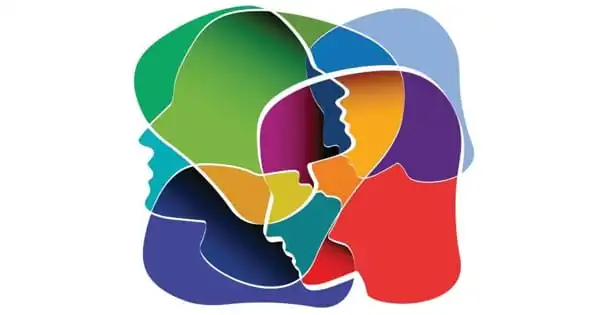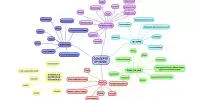Over the last two decades, translational research has considerably improved our understanding of the nature of emotional issues in schizophrenia. Researchers were able to find that people with schizophrenia exhibit very few outward manifestations of emotion but report experiencing powerful feelings in the presence of emotionally evocative objects or situations by applying methods and theories from affective psychology.
Psychologists have made an unexpected discovery that may benefit those suffering from schizophrenia: While people with the condition can manage low-level unpleasant feelings, they suffer when those bad emotions become more intense.
Schizophrenia is an illness that affects many areas of life. Some of the most obvious symptoms include difficulty with thinking (e.g., disordered thinking, delusions) and perception (e.g., hallucinations). While these symptoms may come and go with episodes, some of the more persistent symptoms involve emotional issues.
A person with schizophrenia often has more negative feelings and more stressors than the average individual. A new study by the University of Georgia psychologists discovered an unexpected conclusion that may aid those suffering from the illness: While persons with schizophrenia can manage low-level unpleasant feelings, they suffer when those negative emotions become more intense.
The concept of identification in a healthy person tracks as you would expect: as negative emotion increases, they’re more likely to control it. At lower levels, say 1 or 2, it’s unlikely that you’ll be able to affect change. A healthy individual, on the other hand, is considerably more likely to engage in efforts to change how they are feeling as the amount of negative emotion rises.
Ian Raugh
People manage their emotions to go from one feeling to a more desirable one, whether that is a return to calm, a shift toward happiness, a reduction in anger, or the use of a completely new emotion. The study focuses on the identification stage of emotion regulation and how the process changes in outpatients diagnosed with psychotic disorders and a control group, using clinical data from outpatients diagnosed with psychotic disorders and a control group. For levels of negative emotions, the researchers employed a scale ranging from 1 to 10, with 10 signifying the highest level of anxiety or emotional discomfort.
“The concept of identification in a healthy person tracks as you would expect: as negative emotions increase, they’re more likely to control it,” said Ian Raugh, doctoral candidate and primary author on the new study. “At lower levels, say 1 or 2, it’s unlikely that you’ll be able to affect change. A healthy individual, on the other hand, is considerably more likely to engage in efforts to change how they are feeling as the amount of negative emotion rises.”

However, the researchers discovered that emotion control does not develop in the same way in people with schizophrenia. A healthy individual attempts to manage their emotions when under stress, whereas someone with schizophrenia will not or cannot do so.
“They are, in fact, less likely. That is the true abnormality: people with schizophrenia do not appear to strive to moderate their emotions as much when their emotions are extremely high “He stated.
Raugh claims that people suffering from schizophrenia are less likely to use coping mechanisms or emotion management to make themselves feel better. And if a situation worsens, individuals are less likely to try to change it for the better.
“In psychology, we refer to this as ‘learned helplessness’ or ‘defeatist attitudes,’ when people believe that ‘well it’s not going to work even if I try, so why bother,’ which is also common in depression. As a result, that feature is likely to be driving fewer tries at higher levels.”
The researchers also considered the possibility that persons suffering from schizophrenia are just weary. Because they are also regulating when negative emotion is low, they may be exerting effort when it is least effective or when the rewards are little. As a result, it’s much more difficult when their emotions are at their peak.
“A lot of it comes down to their not regulating as much when it would be most beneficial to do so,” Raugh explained. “Future research will attempt to learn more about why they would regulate less at greater levels.”
“Our next goal is to see if the similar issue exists in kids at risk for schizophrenia,” said Gregory Strauss, associate professor of psychology, director of the UGA Clinical Affective Neuroscience Laboratory, and study senior author. “Stress reactivity has long been thought to be a risk factor, but these findings imply that managing that stress response should also be considered. If the same problems exist years before the onset of the illness, tailored psychological treatments may hold promise for preventing schizophrenia.”















